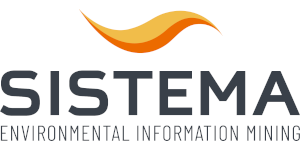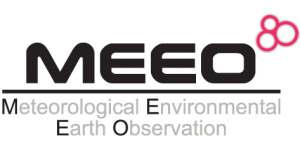The Food Security Use Case (UC3) developed by MEEO, SISTEMA and CMCC, aims to address the impact of Climate Change on the productivity of essential food security crops from the food, social and economic perspective, allowing to determine the most suitable areas for specific crops and thus promoting sustainable management at the territorial level.
The project is developed through the identification of specific climate indicators for target crops in specific areas, which allow the impact of Climate Change to be assessed and yield trends to be predicted over time. Moreover, it’s possible to determine the most suitable areas for specific crops cultivation over time and to define the sustainability of specific crop cultivation. This information makes it possible to anticipate potential yield declines and helps in the implementation of Climate Change mitigation solutions in larger territorial districts.
Commercial Motivation & Value Proposition
Climate change is having an increasingly severe and negative impact on open-field agriculture, making crops more vulnerable to precipitation variability, extreme weather events, droughts, temperature fluctuations, and new outbreaks of pests.
These factors disrupt phenological cycles, reduce productivity, and jeopardize many high- value crops, thereby worsening food crises, especially in regions already fragile in terms of food security.
In this context, a concrete need emerges: to equip farmers and sector stakeholders with predictive tools that support informed and sustainable decision-making based on climate evolution, future resource availability, and the agricultural suitability of specific areas.
The value of the service provided by UC3 lies in its ability to guide these choices, supporting the resilience of agricultural production and contributing to the economic, environmental, and social sustainability of the sector.
Strategic Commercial Applications
UC3 provides innovative applications to support sustainable agriculture and food security by identifying the most suitable areas for specific crops over time and assessing the sustainability of such cultivations. This enables the prediction and anticipation of potential yield declines in a given area and supports the implementation of climate change mitigation solutions. The proposed service is primarily aimed at producer associations and individual producers. It allows farmers to better plan long-term sowing and harvesting activities, easily identify areas under stress due to climate change for timely interventions, and make more informed decisions, thereby reducing their vulnerability and improving overall agricultural productivity. Thanks to the use of EO data, the UC3 has applications in a variety of agriculture-related sectors:
- Agricultural insurance, which can better assess and manage climate-related risks and crop losses
- Precision farming, which uses this information to optimise inputs such as fertilisers and irrigation
- Agricultural commodity and financial markets, which benefit from more accurate forecasts for investments and trading decisions.
Scalability & Exploitation Potential
The methodology developed for the UC3 demonstrates remarkable flexibility and transferability, with significant potential for scalability and exploitation. Initially, industrial tomato was selected as the pilot crop, and the same methodology was successfully scaled to maize, another essential food crop with a similar growing season. This extension to maize, using the same Machine Learning (ML) architectural model but re-trained with crop- specific data (yields, climatic indicators, and territorial data tailored to the maize growing cycle), confirms the scalability of the UC3 approach.
The applied methodology can be updated to meet specific requirements in terms of climatic indicators, area of interest, and/or crop parameters to be monitored. Furthermore, the UC can be extended to different crop types by considering their optimal climatic conditions and integrating new climatic indicators into the crop yield analysis. There is also potential to transfer the use of innovative digital tools to other relevant territories in the Emilia-Romagna region, in collaboration with associations, consortia, and multi-year regional agricultural planning. This will support local user adoption.
The accuracy of the analyses can be further refined by collecting higher-quality local data, surpassing those currently available, for example, from the National Institute of Statistics (ISTAT), through consortia and associations. Finally, there may be an opportunity to explore links with existing digital solutions to enhance overall digital integration.
Current status
Leveraging the EO4EU Platform, two pipeline are currently available for the users, each one dedicated to a specific crop, but based on the same scalable methodology.
Industrial tomato: this crop was selected as the starting point for its high relevance for the Mediterranean diet and its economic importance in Italy.
The study areas were chosen to reflect a range of climatic conditions, allowing a thorough analysis of climate change impacts on productivity. The UC3 has achieved steady progress in the tomato use case. It has been fully integrated into the EO4EU platform, which supplies input data for the inference phase. The number of climate indices (including climate, soil and elevation parameters) has reached 84, categorized into different growing periods: the entire growing cycle (from April to September, “tot”), the planting and early growth season (from April to June, “q2”), the production season (from July to September, “q3”), and the critical month of May. To enhance the geographical coverage of the dataset, climatic, soil, altitude, and yield data from Spain - another major tomato producing country have been integrated, allowing for a broader and more robust comparison. In addition, the time span was increased: climate and productivity data from 2006 to 2023 were used.
A ML model has been developed to predict tomato yield classification based on climate and territorial indicators. This model enables yield classification in both new geographical areas and future climate scenarios, providing valuable insights into how climate change may impact tomato cultivation in different regions. The results obtained will aid in identifying areas that remain favorable for tomato production and adapting agricultural strategies accordingly. The whole workflow has been carried out with the support of stakeholders, who were able to provide crop-specific physiological, agricultural and management information and needs for their working sector. Numerous interactions have been held with different entities, consortia, and associations to better define the use case requirements and to refine the applied methodology.
Maize extension: Following the successful implementation for tomato, the methodology was applied to maize, one of the most widely cultivated crops in Italy and Europe. Maize was chosen not only for its importance in food systems but also because its cultivation period closely aligns with that of tomato, facilitating methodological reuse. The same ML model architecture used in the tomato use case was adopted but re-trained from scratch using data specific to maize. In particular, the model was trained with maize yield data, climate and territorial indicators all tailored to the maize cultivation cycle and collected from selected Italian and French provinces. These provinces were chosen based on their high productivity and climatic diversity, to ensure the relevance of the data and to enable robust comparisons across different agro-climatic zones, as was previously done for the tomato crop. This extension confirms the scalability of the UC3 approach: by simply adjusting the periods for computing climate indicators to match the crop calendar, the entire workflow can be transferred to other strategic crops, enhancing food security planning under climate uncertainty.
Technical Details
- Overview
-
For its analysis, UC3 uses a wide range of data — including ground-based observations, satellite imagery, and historical production and climate time series — to provide various services such as impact assessment, risk estimation of loss or damage through predictive algorithms, and the identification of new areas with favorable climatic conditions or crops suited to new climate scenarios.
The case study is developed through the identification of specific climate indicators for target crops in defined areas, allowing for the assessment of climate change impacts and the prediction of yield trends over time. Initially, tomato was selected as the first target crop then the same methodology was successfully scaled to maize.
The EO4EU platform is essential for the use case, as it facilitates access to data and the execution of models. UC3 has been fully integrated into this platform, which provides input data for the inference phases. The workflows are implemented through a modular Jupyter Notebook architecture, allowing for the separate execution of components and their orchestration into a single script to improve and compare individual elements. Through the EO4EU platform, users can forecast crop yields classes at a specific time and location of their choice. - Challenge
-
Climate change is a negative outcome of environmentally damaging food systems, and a threat to the future of food production and the livelihoods that depend on it. Food systems encompass all the interrelated actors and processes involved in the production, processing, distribution, consumption, and disposal of food. Rising temperatures, extreme and unpredictable weather patterns, and disruption to water cycles are already causing reductions in the yields of staple crops in some regions of the world. Climate change presents a key threat to agroecosystems, food security and the many livelihoods dependent on food production, particularly in the global South. In an already flawed and inequitable food system, climate change therefore acts as a threat multiplier, further aggravating existing problems such as hunger and food insecurity. In some geographical hotspots climate change is already undermining food systems, even where incremental adaptation measures are ramping up. Transformative adaptation in agriculture promotes
long-term resilience by continually shifting the geographical locations where specific types of crops and livestock are produced, aligning agricultural production with changing landscapes and ecosystems, and/or introducing resilience-building production methods and technologies across value chains.
- Solution
-
UC3, addressing food security, relies on a multitude of observation data types (from ground, satellite, production and climatic time series) to implement different services:
- Impact analysis, mainly based on observation data
- Risk of loss or damage estimation, through the development of predictive algorithms, based on recent time-series, forecast data and the characterization of the impact estimates of the previous component
- Identification of new areas with favorable climate conditions for specific crops
- Identification of crops suitable for new climate conditions.
- Jupyter Notebook
-
Jupyter Notebooks are essential for implementing the algorithms in the Food Security UC within the EO4EU platform. The pipeline of these notebooks is designed with a modular architecture, meaning that each component can be executed independently, but they can also be orchestrated together in a single script. This modularity allows for the improvement and comparison of individual elements of the process. Specifically, the notebooks provide algorithms for data download, data preparation for crop yield prediction, and execution of the ML model for forecasting. By following the workflow described in these notebooks,
users can take advantage of the EO4EU Platform to predict crop yields for a specific areaand time.
Watch the workshop recording on the Food Security Use Case (Italian version)
Watch the workshop recording on the Food Security Use Case (English version)
Input data
Relevant data for the UC3, including Earth observation, simulations, projections, and statistics, have been selected to train the model and to support the production forecasts, and are described below:
- Copernicus ERA5 (temperature and precipitation)
- ISTAT (Italian crop distribution and production at local scale)
- Copernicus DEM 30 m of resolution
- SoilGrid information (clay, sand, nitrogen, ocd, phh2o)
- Very High-Resolution datasets from CMCC simulations (historical simulations and projections of temperature)
Data from the dataset listed are collected from several Italian regions and for the entire Spanish territory from 2006 to 2023 for the tomato crop, to obtain more comprehensive statistics and a larger dataset to train the predictive model. For the maize crop, instead, data were collected for the same period, but from several regions in Italy and France, with the aim of training the model specifically for maize cultivation.
Click here and learn more with the EO4EU Use Case 3 "Food Security" Flyer
Impact achieved thanks to the EO4EU Platform
The Platform facilitates the exploitability of the Food security use case, by allowing easy data access and model running.
While several strategies are already in use to improve agricultural productivity at the field level by optimizing the use of energy and scarce resources, monitoring and forecasting plans that consider the land are still underdeveloped and do not allow for real Climate Change mitigation on a large scale.
This UC aims to analyze the effects of Climate Change on agricultural productivity on a spatial scale by assessing whether a specific crop is sustainable in a given area over time. EO data are particularly useful in this context, as they provide accurate climate information on a large scale and allow plant health to be monitored over time through vegetation indices, thanks to the availability of continuous and periodical satellite images. Thanks to the features available through the Platform, the Food security UC is customizable as the user can select the preferred climate scenario, the time range and the area of interest.
With this information, farmers can better plan their planting and their long-term harvesting activities. Areas experiencing stress due to climate change can be easily identified through change detection in vegetation, allowing for timely interventions. Additionally, farmers and other stakeholders can make more informed decisions, reducing their vulnerability to Climate Change and improving overall agricultural productivity.
Watch the workshop recording on the Food Security Use Case (Italian version)
Watch the workshop recording on the Food Security Use Case (English version)



EO4EU aims to contribute and support Farm to Fork strategy main objectives, by promoting a sustainable food chain from start to finish, fighting food fraud along the supply chain, to protect the transparency of the made-in-Italy quality brands, ensure sustainable food production, ensure food safety.